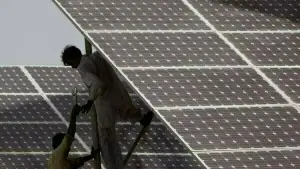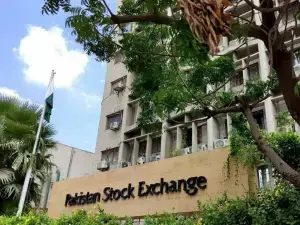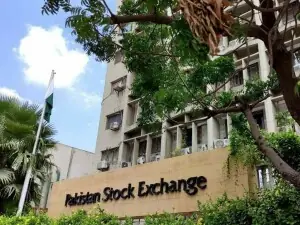Rejected by the United States, the world's plan to combat global warming goes into force on Wednesday amid scant fanfare and UN warnings that it is only a tiny first step The 141-nation Kyoto protocol aims to brake a rise in temperatures widely blamed on mounting human emissions of heat-trapping gases that could trigger droughts and floods, raise sea levels and wipe out thousands of species by 2100. Yet even some backers of the pact, which will be feted on Wednesday mainly in the Japanese city of Kyoto where it was signed in 1997, seem to be lacking enthusiasm.
Many nations, including Spain, Portugal and Ireland, are far above targets for cuts in emissions of greenhouse gases. Britain is in a legal dispute with the European Commission over London's easing of goals for industry and Italy is fretting about costs.
And the United Nations says that fighting climate change will be a long, hard slog.
"Kyoto is without doubt only the first step," Klaus Toepfer, head of the UN Environment Programme, told Reuters. "We will have to do more to fight this rapid increase in temperature on our wonderful blue planet earth. It will be hard work."
"But if you calculate the cost of acting against the cost of not acting you will see this is the best return on investment you ever had," he said.
Kyoto sets legally binding goals of cutting rich nations' emissions of greenhouse gases, mainly carbon dioxide emitted by burning fossil fuels in power plants, factories and cars, by 5.2 percent below 1990 levels by 2008-12.
But some are unconvinced that investments, for instance to shift to clean energy like solar or wind power, are well spent.
President George W. Bush pulled out the United States, the world's top polluter, in 2001 saying it was too costly and wrongly excluded developing nations from goals for 2012. Australia has also withdrawn.
"Even if the Kyoto protocol were extended forever it would have no measurable effect on the climate," said Bjorn Lomborg, Danish author of "The Skeptical Environmentalist".
He said Kyoto would cost $150 billion a year and that the money could be better used to fight diseases like AIDS and malaria, combating malnutrition and promoting free trade.
After the US pullout, Kyoto won sufficient backing to start when Russia signed up late last year. It will formally enter into force at midnight New York time (0500 GMT Wednesday).
Most scientists see reason for alarm from the build-up of greenhouse gases since the Industrial Revolution. 1998 was the warmest year since surface records began in the 1860s, followed by 2002 and 2003.
BR100
16,307
Increased By
236.2 (1.47%)
BR30
51,537
Increased By
1163.4 (2.31%)
KSE100
157,953
Increased By
1775.7 (1.14%)
KSE30
48,199
Increased By
520.5 (1.09%)






















Comments
Comments are closed.